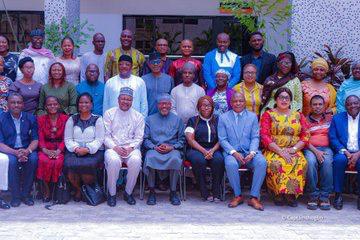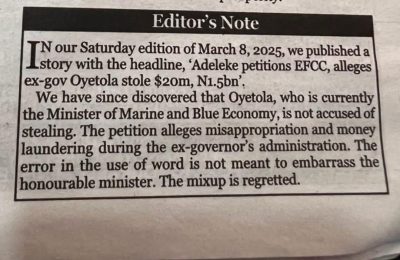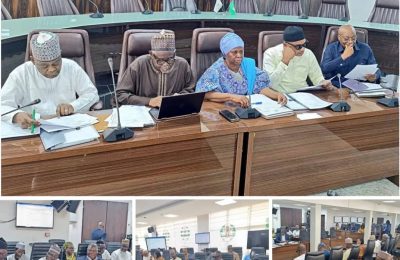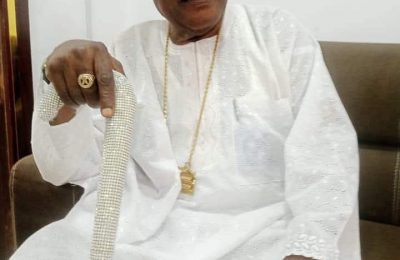
Taofeek Lawal
The Federal Government has inaugurated a 40-man committee which will develop the National Water and Hygiene Sanitation (WASH) Policy for Nigeria.
Inaugurating the committee in Abuja on Monday, the Minister of Environment, Mohammed Abdullahi, said while the government has continued to take several critical steps towards changing the poor situation of the water and sanitation sector, he added that inadequate sanitation has made people vulnerable to pandemics and disease outbreaks which have had fatal consequences on the populace.

According to the minister, WASH is no longer just a human need but a human right and an indispensable issue occupying a premium place in the international development agenda.
“In Nigeria, WASH is considered so critical to the lives and well-being of citizens that it is embedded in the mandates of multiple Ministries, Departments, and Agencies (MDAs) at the Federal and State levels, to get everyone working at the same time to accelerate positive change in the sector.
“WASH is no longer just a human need but has become a human right and an indispensable issue occupying a premium place in the international development agenda, as the right to WASH is a prerequisite for enjoying several other rights, including economic, cultural and social rights.
The first target of Sustainable Development Goal 6 (SDG6) is to provide access to safe drinking water for all while the second is to achieve access to adequate and equitable sanitation and hygiene for all by the year 2030. Therefore, the achievement of all the other SDGs is heavily dependent on the realization of SDG 6.”
The development of the WASH Policy, the minister added, is fundamental to effective planning, result-oriented programming and efficiency in financing that is necessary to address the current unpleasant narrative.
The Country Director of WaterAid Nigeria, Evelyn Mere, in her submission, stated that recent data from the 2021 WASH National Outcome Routine mapping (WASHMORM), has shown that only 10 per cent of the population had access to basic water, sanitation, and hygiene services.
Mere said while 68 million Nigerians lack access to basic drinking water services, 113 million people lack decent toilets, and 48 million people practice open defecation.
YOU SHOULD NOT MISS THESE HEADLINES FROM NIGERIAN TRIBUNE
SPOTLIGHT: Agboola Joshua, the youngest certified cloud practitioner in Africa
Agboola Joshua is the founder and Chief Executive Officer of Joshfortech. At age 6, Joshua started…
Why we didn’t admit applicant with 326 JAMB score — UNILAG
The management of the University of Lagos(UNILAG) Akoka has debunked the claim by…
Why Chioma and I got married during our grieving moment —Davido
Nigerian music star, Davido, has revealed that he and his wife, Chioma, got married after losing their son, Ifeanyi in…
Datti: NBC slams N5m penalty on Channels Television hours after Tinubu’s petition
The National Broadcasting Commission (NBC) has slammed a fine of N5 million on Channels Television for…
How PSG star Neymar lost €1 million to online gambling in one sitting
PSG star Neymar who is currently recovering from ankle surgery spent some of his time on Tuesday playing…
Interim govt: I’m seeing swearing-in holding despite electoral fraud – Primate Ayodele
The leader of INRI Evangelical Spiritual Church, Primate Elijah Ayodele has declared that there will be no interim government in…








